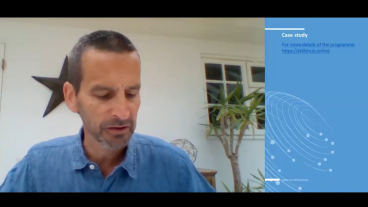You are here
- Home
- The Future of Workers – implementing learning and development solutions
The Future of Workers – implementing learning and development solutions

Work has been shifting from the traditional 9-5 office based model for a number of years, with the emergence of the gig economy, flexible work patterns and digital ways of working. Then Covid-19 and lockdown happened and huge swathes of the workforce migrated to working more flexibly, from home, almost overnight.
The Future of Workers – implementing learning and development solutions is the focus of a recent presentation by The Open University, delivered by Head of Skills and Innovation, Simon Tindall, and Senior Lecturer in Management, Dr Jamie Woodcock. The OU had a virtual stand at the CIPD’s Festival of Work, a two-day event looking at what is happening in the L&D and HR space, which took place virtually this year. On the webinar, Simon and Jamie discussed the benefits and challenges of the gig economy, the ‘new normal’ and the future of work.
Jamie says a mass experiment is currently underway, in terms of people working from home who would normally work from an office. He thinks it is really important that organisations think about how to build a future of work that is equitable for all, for people who work in the gig economy and in more traditional work environments.
When we look at the future of work it’s incredibly important to draw attention to the experiences of workers in these new kinds of jobs as well as the experience of workers in more traditional forms of employment because as we come out of the pandemic, this is a question about what kind of work do we want. There are some positives and there are some very important challenges to draw attention to.
Dr Jamie Woodcock
Senior Lecturer, The Open University
One of the main benefits cited by gig economy workers is the ability to work flexibly – when they want to work, how they want to work and the number of hours, for example. It can suit people with family or caring responsibilities or who want to pursue other interests. However, that flexibility can come at a cost in terms of employment rights and economic stability.
Flexible working practices also offer big benefits to employers in terms of managing large workforces and peaks and troughs in demand.
In the presentation, Simon talked about Uber, which offers some great perks to key employees, such as a partnership with the OU that gives drivers the ability to study at the OU free of charge. And if they don’t want to study for a degree themselves, they can pass it on to a direct family member.
The presentation formed part of a wider programme of expert masterclasses, practical case studies and interactive panel discussions as the OU continues to share its expertise in delivering flexible, work-based learning for employees across a wide range of sectors.
Watch presentation
Complete the form below to watch the presentation.
Fields marked with * are mandatory.
Find out how we can help your organisation
Please contact us to speak to one of our business team advisors.
Not on our mailing list?
Sign up to receive regular emails that are full of advice and resources to support staff development in your organisation.